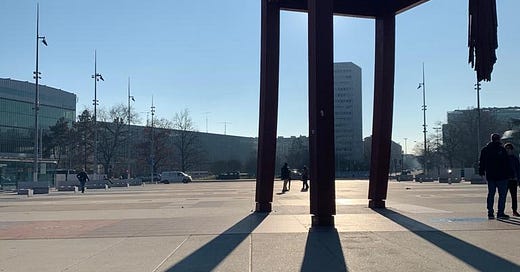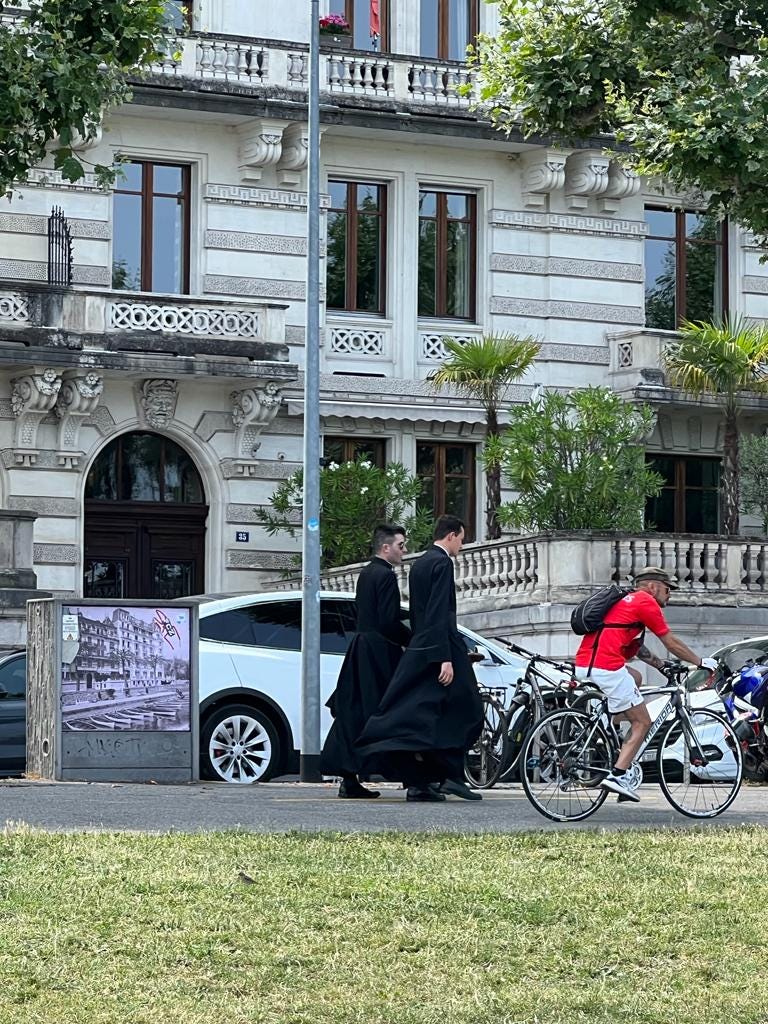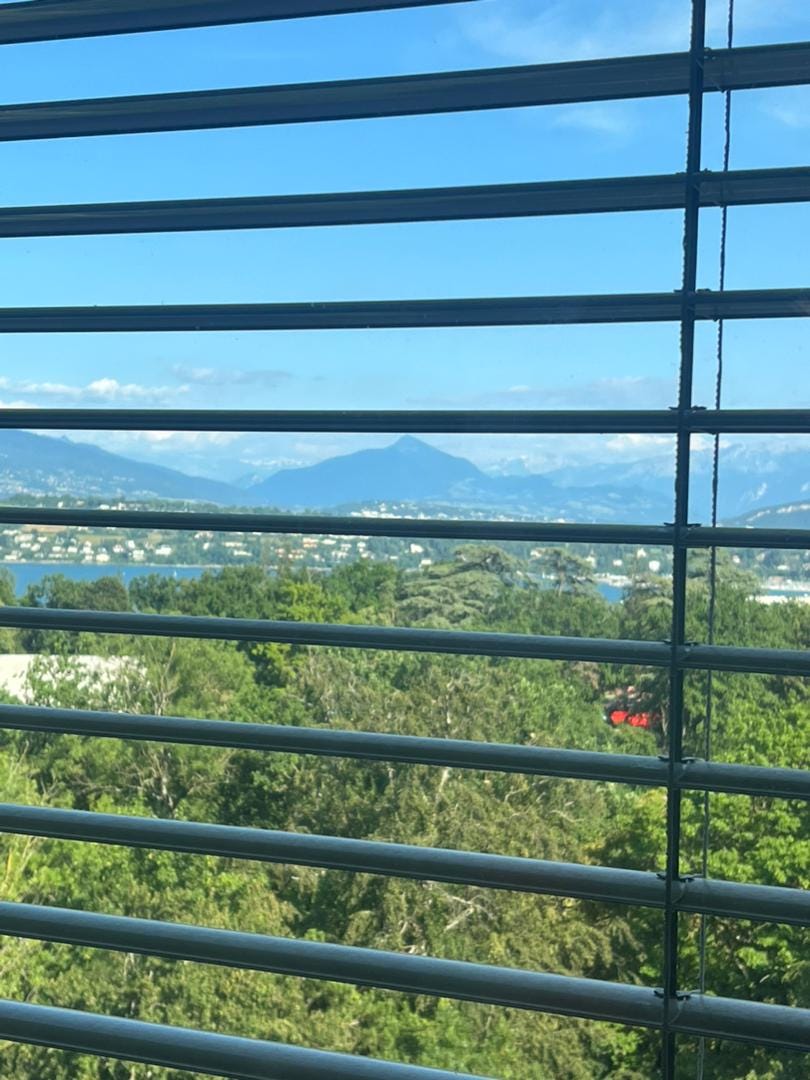This week was meant to be monumental for global health, filled with anticipation and hope. However, as the news reverberated through the corridors of progress, I found myself shaken to the core. The revelation that Dr. Muhammad Pate, the anticipated leader of Gavi, would not be able to assume his role hit me like a literal earthquake. In the aftermath of this seismic announcement, I cannot help but reflect on what Dr. Pate's appointment symbolized for global health and, particularly, for those of us residing in the Global South.
For much of my career, I have joined many from the Global South to speak out against the inequities deeply entrenched within the global health architecture. Together, we have passionately championed inclusion, challenged the status quo, and called for a fundamental shift in power dynamics. We have demanded that the Overton window be shifted, inviting a critical examination of power and its utilization within the realm of global health. We raise our voices with unwavering conviction because we have witnessed firsthand the devastating consequences of inequity. We have seen how entire continents, such as Africa, were left behind in the wake of the COVID-19 pandemic.
In this Lancet article, for example, I outlined five essential pillars that are vital for strengthening global health security and fostering a renewed sense of optimism in our collective ability to achieve equitable health for all. These pillars are preparedness, access, countermeasures, tools, and trust. Trust, in particular, emerges as a critical factor due to the deep-rooted issues of exclusion, inequity, and discrimination. Rebuilding trust becomes the foundation for any meaningful change, requiring us to restore faith in one another, in our institutions, and in the potential for transformative progress. Without trust, progress becomes elusive, hindering our ability to forge true partnerships with our counterparts in the Global North who must recognize our inherent equality and embrace us as equal members of the global community.
Last year, I emphasized the imperative of rebuilding the global health and development architecture to foster inclusivity and amplify the voices of the Global South. This call stemmed from the persistently unacceptable status quo that pervades our world. Undeniably, the current global health infrastructure is broken, with an unjust concentration of power in the hands of a privileged few. The profound inequities predate the COVID-19 pandemic and persist still.
For us, this fight transcends mere hurt feelings; it is a matter of life and death for billions of vulnerable individuals worldwide.
When news broke of Dr. Pate's appointment as the head of Gavi, the world's largest procurer of vaccines for lower-income countries, it felt like a glimmer of hope. It felt like a beacon signaling that finally, someone was taking us seriously. Finally, it seemed that recognition was being given to the fact that we belong not only in low and mid-level positions, filling quotas and diversity requirements, but also at the helm of global health organizations which are a household name in the global health world and dedicated to providing vaccines for lower-income countries. It was a step towards confronting the subtle systems of exclusion that have perpetuated power imbalances and hindered our ascent to leadership positions. We yearned for an opportunity to dismantle the roadblocks obstructing our progress in achieving equity and inclusion.
This fight is not unfounded. Discrimination, racism, and exclusion are not always overt and glaring; they are often woven into the fabric of the systems that govern our world. These systems create different rules for different individuals, allowing some to thrive while placing relentless obstacles in the paths of others. They operate on the assumption that black and brown people are incapable of wielding power at the highest levels with responsibility and success. These systems convey the message that we will not be afforded the same privileges and grace, the privileges that come with the assumption of competence and the grace to try and, if need be, to fail like anyone else.
Dr. Pate's appointment was a glimmer of hope because it signified a potential breakthrough in this relentless struggle for equity and inclusion. Therefore, his sudden inability to take on the role forces us to sit up and question the state of affairs. We cannot overlook the significance of this moment; it demands our unwavering attention. We must watch the subsequent proceedings at Gavi with hawk-like vigilance, reminding the world of global health that solidarity and collaboration mean nothing if we, like others, cannot hold positions of power to advocate for the most vulnerable among us.
While still reeling from the news of Dr. Pate, I am filled with a mixture of curiosity and trepidation as I observe the unfolding events at Gavi. It is imperative that we maintain a critical eye, ensuring that the principles of solidarity and inclusion translate into tangible action. The global health landscape cannot afford to squander this opportunity to rectify the deep-rooted imbalances that have plagued our field for far too long.
As the dust settles and the aftershocks of this earthquake continue to reverberate, we must seize this moment to reflect, regroup, and reaffirm our commitment to dismantling the barriers that hinder progress. It is through collective effort, with a resolute focus on equity, justice, inclusion and respect, that we can usher in a new era of global health—one that values the voices and leadership of individuals from the Global South, and one that serves the most vulnerable among us with unwavering dedication.
Justice demands more than tokenism; it necessitates respect. Respect for our identity, our inherent worth, our agency, and the power of our voices, especially in the corridors of power. It is a recognition that we, as black and brown individuals of the global south, possess the capacity to envision a future as profound and sophisticated as anyone else.
In this pivotal moment, we have a choice—to let the tremors paralyze us or to stand tall amidst the rubble, rebuilding a global health landscape that champions equity, inclusion, and the inherent worth of every human life. The choice is ours, and the urgency could not be more apparent.







Thank you for sharing these insightful thoughts! I am not very well informed about the details or the decision for Dr. Pate leaving GAVI. I read an article (https://businessday.ng/politics/article/pates-gavi-resignation-fuels-ministerial-appointment-talk/) that gave me the impression it was his own choice and a difficult decision but driven by his desire to take a position in Nigeria’s health system.
Would be keen to learn more if this is not the correct representation and rationale for him. Thank you!